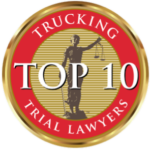It is always a good idea for private sector employers to review their employee handbooks or manuals periodically to make sure that they are in compliance with constantly changing local, state, and federal workplace laws and court and agency decisions.
A recent memorandum issued by the General Counsel of the National Labor Relations Board (NLRB), Richard F. Griffin, Jr., illustrates the potential problems that can be generated by an out-of-date or carelessly written employee handbook.
The NLRB, based in Washington, D.C., is the federal government agency tasked with protecting the rights of private sector employees to join together, with or without a union, to improve their wages and working conditions. Through a five-member board appointed by the President, the NLRB enforces the provisions of the National Labor Relations Act of 1935. Among other provisions, Section 7 of the Act states that private sector employees have the right to unionize and to “engage in other concerted activities for the purpose of collective bargaining or other mutual aid or protection”. Section 7 has been called “the First Amendment” of the American workplace.
The NLRB’s General Counsel, appointed by the President to a 4-year term, is independent from the Board and is responsible for the investigation and prosecution of unfair labor practice cases, and for the general supervision of the NLRB’s 26 regional field offices (including in Miami and Tampa) in the processing of cases.
In a 30-page guidance Memorandum dated March 18, 2015, Mr. Griffin has laid out what he sees as significant legal deficiencies in some employer handbooks. “Although I believe that most employers do not draft their employee handbooks with the object of prohibiting or restricting conduct protected by the National Labor Relations Act,” Mr. Griffin said in his introduction, “the law does not allow even well-intentioned rules that would inhibit employees from engaging in activities protected by the Act.”
Under the NLRB’s 2004 leading decision in Lutheran Heritage Village-Livonia, 343 NLRB 646, the mere publication and maintenance of a work rule by an employer may constitute an unlawful “unfair labor practice” if, among other things, the rule has a “chilling effect” on employees’ activities protected under Section 7. It is enough for a violation to exist if employees would “reasonably construe” the rule’s language to prohibit protected Section 7 activity.
Employer rules that often are found unlawful by the NLRB include confidentiality rules, professionalism rules, anti-harassment rules, trademark rules, photography/recording rules, and media contact rules. Employers, of course, have the right to challenge the NLRB’s decisions in court, where from time to time judges overrule the Board.
While every workplace rule that reaches the NLRB for consideration will be judged on its specific text and context, employers may obtain valuable guidance from the examples provided by Mr. Griffin of the types of handbook rules that have been determined to be unlawful by the NLRB.
Confidentiality Rules
Because employees have a Section 7 right to discuss wages, hours, and other terms and conditions of employment with fellow employees, as well as with nonemployees, such as union representatives, an employer’s confidentiality policy that either specifically prohibits employee discussions of terms and conditions of employment—such as wages, hours, or workplace complaints—or that employees would reasonably understand to prohibit such discussions, violates the Act, according to the Memorandum. Similarly, a confidentiality rule that broadly encompasses “employee” or “personnel” information, without further clarification, will reasonably be construed by employees to restrict Section 7-protected communications, and thus be illegal, according to Mr. Griffin.
Examples of confidentiality rules that the NLRB has found unlawful as too broad include:
- Do not discuss “customer or employee information” outside of work, including “phone numbers [and] addresses.”
- “You must not disclose proprietary or confidential information about [the Employer, or] other associates (if the proprietary or confidential information relating to [the Employer’s] associates was obtained in violation of law or lawful Company policy).”
- “Never publish or disclose [the Employer’s] or another’s confidential or other proprietary information. Never publish or report on conversations that are meant to be private or internal to [the Employer].”
- Prohibiting employees from “[d]isclosing … details about the [Employer].”
- “Sharing of [overheard conversations at the work site] with your coworkers, the public, or anyone outside of your immediate work group is strictly prohibited.”
- “Discuss work matters only with other [Employer] employees who have a specific business reason to know or have access to such information… . Do not discuss work matters in public places.”
- “[I]f something is not public information, you must not share it.”
- Confidential Information is: “All information in which its [sic] loss, undue use or unauthorized disclosure could adversely affect the [Employer’s] interests, image and reputation or compromise personal and private information of its members.”
Rules Regarding Employee Conduct toward the Company, Supervisors, and Other Employees
Because employees also have the Section 7 right to criticize or protest their employer’s labor policies or treatment of employees, rules that can reasonably be read to prohibit protected concerted criticism of the employer will usually be found unlawfully overbroad by the NLRB. For instance, a rule that prohibits employees from engaging in “disrespectful,” “negative,” “inappropriate,” or “rude” conduct towards the employer or management, absent sufficient clarification or context, will usually be found unlawful.
Moreover, according to Mr. Griffin, employee criticism of an employer will not lose the Act’s protection simply because the criticism is false or defamatory. Accordingly, a rule that prohibits employees from making “false statements” will be found unlawfully overbroad unless it specifies that only maliciously false statements are prohibited.
In addition, according to the NLRB, employees’ right to criticize an employer’s labor policies and treatment of employees includes the right to do so in a public forum. Notably, that includes comments posted on internet social media sites such as Facebook and Twitter or in online blogs. In the NLRB’s view, employers may not generally prohibit an employee from commenting online about the Company’s business, policies, or employees without authorization, or prohibit them from doing so anonymously.
Thus the Board has found the following workplace rules to be unlawfully overbroad because employees reasonably would construe them to ban protected criticism or protests regarding their supervisors, management, or the employer in general:
- “[B]e respectful to the company, other employees, customers, partners, and competitors.”
- Do “not make fun of, denigrate, or defame your co-workers, customers, franchisees, suppliers, the Company, or our competitors.”
- “Be respectful of others and the Company.”
- No “[d]efamatory, libelous, slanderous or discriminatory comments about [the Company], its customers and/or competitors, its employees or management.”
- “Disrespectful conduct or insubordination, including, but not limited to, refusing to follow orders from a supervisor or a designated representative.”
- “Chronic resistance to proper work-related orders or discipline, even though not overt insubordination” will result in discipline.
- “Refrain from any action that would harm persons or property or cause damage to the Company’s business or reputation.”
- “[I]t is important that employees practice caution and discretion when posting content [on social media] that could affect [the Employer’s] business operation or reputation.”
- Do not make “[s]tatements “that damage the company or the company’s reputation or that disrupt or damage the company’s business relationships.”
- “Never engage in behavior that would undermine the reputation of [the Employer], your peers or yourself.”
The NLRB has concluded that the following workplace rules were unlawfully overbroad or ambiguous because employees would reasonably construe them to restrict protected discussions with their coworkers.
- “[D]on’t pick fights” online.
- Do not make “insulting, embarrassing, hurtful or abusive comments about other company employees online,” and “avoid the use of offensive, derogatory, or prejudicial comments.”
- “[S]how proper consideration for others’ privacy and for topics that may be considered objectionable or inflammatory, such as politics and religion.”
- Do not send “unwanted, offensive, or inappropriate” e-mails.
- “Material that is fraudulent, harassing, embarrassing, sexually explicit, profane, obscene, intimidating, defamatory, or otherwise unlawful or inappropriate may not be sent by e-mail.”
Rules Regarding Employee Communications with Third Parties, Including the News Media, Outside the Workplace
The NLRB has found the following rules regarding third party communications to be unlawfully overbroad because employees reasonably would read them to prohibit protected communications with the news media:
- Employees are not “authorized to speak to any representatives of the print and/or electronic media about company matters” unless designated to do so by HR, and must refer all media inquiries to the company media hotline.
- “[A]ssociates are not authorized to answer questions from the news media. .. . When approached for information, you should refer the person to [the Employer’s] Media Relations Department.”
- “[A]ll inquiries from the media must be referred to the Director of Operations in the corporate office, no exceptions.”
- “If you are contacted by any government agency you should contact the Law Department immediately for assistance.”
Rules Regarding Employee Use of Company Logos, Copyrights, or Trademarks
Handbook rules that restrict employee use of company logos, copyrights, or trademarks also have run into trouble with the NLRB. As Mr. Griffin observes, although copyright holders have a clear interest in protecting their intellectual property, handbook rules cannot prohibit employees’ fair protected use of that property. For instance, a company’s name and logo will usually be protected by intellectual property laws, but employees have a right to use the name and logo on picket signs, leaflets, and other protest material. Therefore, a broad employer prohibition on such use without any clarification will generally be found unlawfully overbroad.
Accordingly, the NLRB has found that the following employer rules were unlawful because they contain broad restrictions that employees would reasonably read to ban fair use of the employer’s intellectual property in the course of protected concerted activity:
- Do “not use any Company logos, trademarks, graphics, or advertising materials” in social media.
- Do not use “other people’s property,” such as trademarks, without permission in social media.
- “Use of [the Employer’s] name, address or other information in your personal profile [is banned] … . In addition, it is prohibited to use [the Employer’s] logos, trademarks or any other copyrighted material.”
- Company logos and trademarks may not be used without written consent … .”
Rules Restricting Photography and Recording
In Mr. Griffin’s view, employees have a Section 7 right to photograph and make recordings in furtherance of their protected concerted activity, including the right to use personal devices to take such pictures and recordings. Thus, he continues, workplace rules placing a total ban on such photography or recordings, or banning the use or possession of personal cameras or recording devices, are unlawfully overbroad where they would reasonably be read to prohibit the taking of pictures or recordings on non-work time.
The Board has found that the following handbook rules unlawfully overbroad because employees reasonably would interpret them to prohibit the use of personal equipment to engage in Section 7 activity while on breaks or other non-work time:
- “Taking unauthorized pictures or video on company property” is prohibited.
- “No employee shall use any recording device including but not limited to, audio, video, or digital for the purpose of recording any [Employer] employee or [Employer] operation … .”
- A total ban on use or possession of personal electronic equipment on Employer property.
- A prohibition on personal computers or data storage devices on employer property.
- Prohibition from wearing cell phones, making personal calls or viewing or sending texts “while on duty.”
Rules Restricting Employees from Leaving Work
In his Memorandum, Mr. Griffin states that “one of the most fundamental rights employees have under Section 7 of the Act is the right to go on strike”. Accordingly, rules that regulate when employees can leave work are unlawful if employees reasonably would read them to forbid protected strike actions and walkouts. Thus, these workplace rules have been found by the Board to be unlawful:
- “Failure to report to your scheduled shift for more than three consecutive days without prior authorization or ‘walking off the job’ during a scheduled shift” is prohibited.
- “Walking off the job …” is prohibited.
The NLRB found the following rule unlawful because it was phrased broadly and did not include any clarifying examples or context that would indicate that it did not apply to protected Section 7 activities:
- Employees may not engage in “any action” that is “not in the best interest of [the Employer].”
No Distribution/No Solicitation Rules
Many employers include provisions in their handbooks to the effect that “It is our policy to prohibit the distribution of literature in work areas and to prohibit solicitation during employees’ working time. ‘Working time’ is the time an employee is engaged, or should be engaged, in performing his/her work tasks for us. These guidelines also apply to solicitation and/or distribution by electronic means.”
The NLRB has found that such a rule was unlawful because it restricted distribution by electronic means in work areas. In the NLRB’s view, an employer may lawfully restrict distribution of literature in paper form in work areas, but it has no legitimate business justification to restrict employees from distributing literature electronically, such as sending an email with a “flyer” attached, while the employees are in work areas during nonworking time. Unlike distribution of paper literature, which can create litter and a production hazard even when it occurs on nonworking time, electronic distribution does not present such problems.
In the final section of his Memorandum, Mr. Griffin discusses a case involving the employee handbook of the Wendy’s fast food restaurant chain in 2014. The NLRB concluded that many of the Wendy’s employee handbook rules were unlawfully overbroad and pursuant to a settlement agreement, Wendy’s modified its handbook rules. The discussion contains many useful examples of do’s and don’ts for employee handbooks.
The full Memorandum (Document No. GC 15-04) may be found online at: http://www.nlrb.gov/reports-guidance/general-counsel-memos.




